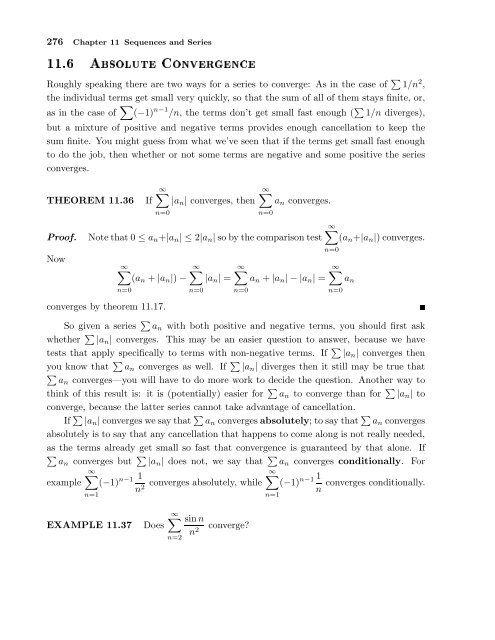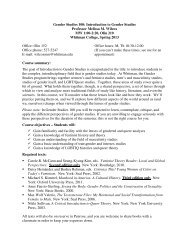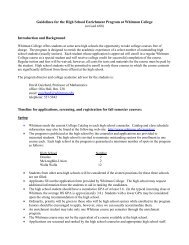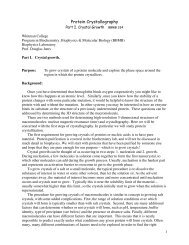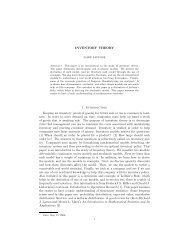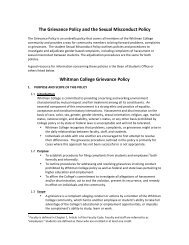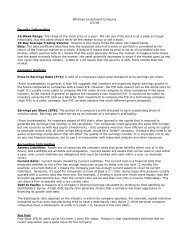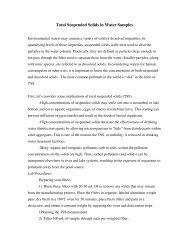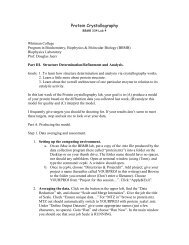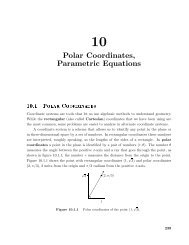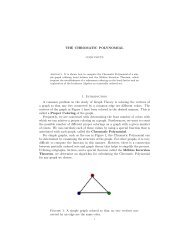Sequences and Series
Sequences and Series
Sequences and Series
You also want an ePaper? Increase the reach of your titles
YUMPU automatically turns print PDFs into web optimized ePapers that Google loves.
½½º ×ÓÐÙØÓÒÚÖÒ276 Chapter 11 <strong>Sequences</strong> <strong>and</strong> <strong>Series</strong>Roughly speaking there are two ways for a series to converge: As in the case of ∑ 1/n 2 ,the individual terms get small very quickly, so that the sum of all of them stays finite, or,as in the case of ∑ (−1) n−1 /n, the terms don’t get small fast enough ( ∑ 1/n diverges),but a mixture of positive <strong>and</strong> negative terms provides enough cancellation to keep thesum finite. You might guess from what we’ve seen that if the terms get small fast enoughto do the job, then whether or not some terms are negative <strong>and</strong> some positive the seriesconverges.THEOREM 11.36 If∞∑|a n | converges, thenn=0∞∑a n converges.n=0Proof. Notethat0 ≤ a n +|a n | ≤ 2|a n |sobythecomparisontestNow∞∑(a n +|a n |)−n=0converges by theorem 11.17.∞∑|a n | =n=0∞∑a n +|a n |−|a n | =n=0∞∑(a n +|a n |)converges.So given a series ∑ a n with both positive <strong>and</strong> negative terms, you should first askwhether ∑ |a n | converges. This may be an easier question to answer, because we havetests that apply specifically to terms with non-negative terms. If ∑ |a n | converges thenyou know that ∑ a n converges as well. If ∑ |a n | diverges then it still may be true that∑an converges—you will have to do more work to decide the question. Another way tothink of this result is: it is (potentially) easier for ∑ a n to converge than for ∑ |a n | toconverge, because the latter series cannot take advantage of cancellation.If ∑ |a n |convergeswesaythat ∑ a n convergesabsolutely; tosaythat ∑ a n convergesabsolutely is to say that any cancellation that happens to come along is not really needed,as the terms already get small so fast that convergence is guaranteed by that alone. If∑an converges but ∑ |a n | does not, we say that ∑ a n converges conditionally. Forn=0∞∑n=0a nexample∞∑(−1) n−1 1 n converges absolutely, while ∑∞ (−1) n−11 2 nn=1n=1converges conditionally.EXAMPLE 11.37 Does∞∑n=2sinnn 2 converge?


